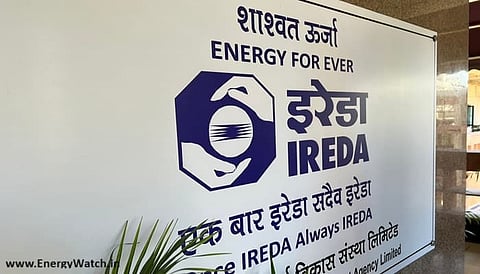

New Delhi: State-run Indian Renewable Energy Development Agency (IREDA) has initiated insolvency proceedings against Gensol Engineering Limited, the company said in a regulatory filing to the stock exchanges late on Wednesday evening. The proceedings have been initiated over a loan default of Rs 510 crore, IREDA told the bourses. Under Section 7 of the Insolvency and Bankruptcy Code (IBC), 2016, a financial creditor, either by itself or jointly with other financial creditors, can initiate corporate insolvency resolution process against a corporate debtor.
The Rs 510-crore loan to Gensol represents approximately 0.67 percent of IREDA’s total gross loan portfolio of Rs 76,282 crore, as per FY2024-25 data.
“In furtherance to our earlier letter dated 25.04.2025 with respect to M/s Gensol Engineering Limited, this is to inform you that the Company has filed an application today i.e. May 14, 2025 under Section 7 of Insolvency and Bankruptcy Code, 2016 against M/s Gensol Engineering Limited, listed company bearing CIN L74210GJ2012PLC129176 for an amount of default of Rs. 510,00,52,672/- (Rupees Five Hundred Ten Crores and Fifty Two Thousand Six Hundred and Seventy Two Only),” the regulatory filing said.
On April 24, IREDA initiated an internal review against Gensol Engineering and also filed a complaint with the Economic Offences Wing (EoW). At the time, IREDA said that Gensol’s account is currently under stress but is not classified as a Non-Performing Asset (NPA). An account is declared an NPA if it continues to remain in default for a period of more than 90 days. According to the National Company Law Tribunal (NCLT), the date of default, not the date of NPA, triggers the insolvency proceedings.
In a regulatory filing to the stock exchanges on May 12, Gensol Engineering had announced that its promoters, Anmol Singh Jaggi Managing Director, and Puneet Singh Jaggi, whole-time Director, have tendered their resignation.
Gensol was to purchase electric vehicles (EVs) from the loans secured from IREDA and Power Finance Corporation (PFC), before leasing them to ride-hailing platform BluSmart. Brothers Anmol Singh Jaggi and Puneet Singh Jaggi, promoters of Gensol and BluSmart, are facing regulatory action by the Securities and Exchange Board of India (SEBI) over allegations of diversion of the loan money meant for EV purchase. SEBI has imposed a capital market ban on the duo, barring them from holding positions in listed companies. On Wednesday, Gensol told the stock exchanges that the Securities Appellate Tribunal (SAT) has given the company an opportunity to file its response on the interim order issued by SEBI within two weeks. The tribunal has also directed SEBI to hear the company within two weeks and pass an appropriate order within four weeks.
BluSmart suspended operations on April 17, leading to ceasing of lease payments and raising concerns among lenders that the Gensol loan account could soon turn into a non-performing asset.
The NCLT now has seven days to admit or reject the petition. After the petition is admitted by the NCLT, it will call for a hearing within 14 days of the filing of the petition. A moratorium period commences once the tribunal admits the petition. The upper limit for this period is 180 days with a possible extension of 90 days under exceptional circumstances. During this period, the tribunal prohibits: institution of fresh suits or continuation of pending suits (in terms of financial debt) against the corporate debtor, dismissal of the corporate debtor from any operational, financial, legal or managerial obligation, any additional foreclosure or recovery of debt against the corporate debtor, and recovery from the corporate debtor of any property that he possesses at the time of the insolvency process.
The NCLT will appoint an Interim Resolution Professional (IRP), who will constitute a Committee of Creditors (COC) within 30 days of the commencement of the Corporate Insolvency Resolution Process (CIRP). The COC and the resolution professional will then propose one or more resolution plans. The plan, which wins the approval of over 75 percent of the COC, is then presented before the NCLT, which sanctions the plan, and it becomes binding on the corporate debtor and all other stakeholders.
